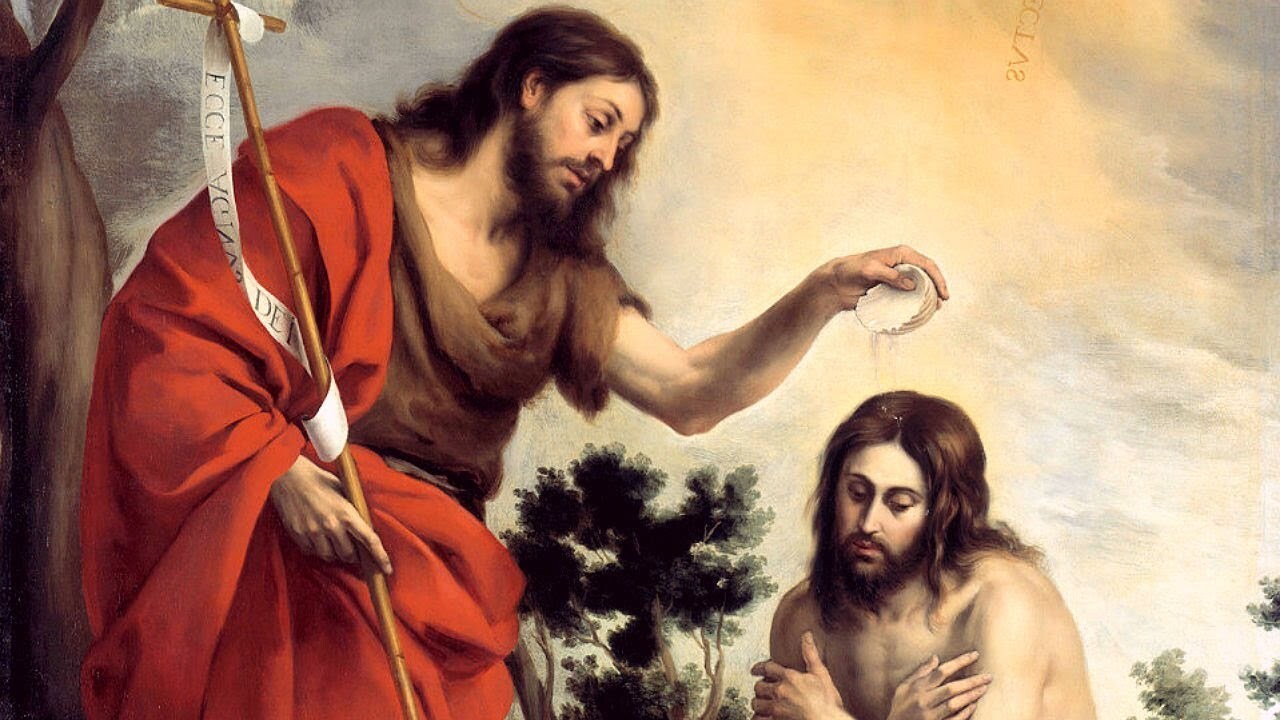
Who was St. John the Baptist? St. John the Baptist, a pivotal figure in Christianity, is known for baptizing Jesus in the Jordan River. Born to elderly parents, Zechariah and Elizabeth, his birth was considered miraculous. John lived an ascetic life in the wilderness, preaching repentance and the coming of the Messiah. He wore camel hair clothing and ate locusts and wild honey. His boldness in condemning sin, including King Herod's unlawful marriage, led to his imprisonment and eventual beheading. John's role as a forerunner to Jesus and his unwavering faith make him a revered saint. Dive into these 30 intriguing facts to learn more about his life and legacy.
Early Life of St. John The Baptist
St. John the Baptist is a significant figure in Christianity, known for his role in baptizing Jesus. His life is filled with fascinating details.
- St. John the Baptist was born to Zechariah and Elizabeth, who were both considered righteous before God.
- His birth was foretold by the angel Gabriel, who also announced the birth of Jesus to Mary.
- Elizabeth, his mother, was a relative of Mary, the mother of Jesus.
- John leaped in Elizabeth's womb when Mary visited her, indicating his recognition of Jesus even before birth.
- He lived a life of asceticism in the wilderness, wearing camel's hair and eating locusts and wild honey.
Ministry and Baptism
John's ministry was pivotal in preparing the way for Jesus. His baptisms were symbolic acts of repentance.
- John began his ministry around the age of 30, preaching in the Judean wilderness.
- He called people to repent for the kingdom of heaven was near.
- John baptized many in the Jordan River, including Jesus, marking the beginning of Jesus' public ministry.
- His baptism of Jesus was accompanied by the Holy Spirit descending like a dove and a voice from heaven saying, "This is my beloved Son, in whom I am well pleased."
- John’s message emphasized the need for ethical living and social justice.
Prophecies and Teachings
John's teachings and prophecies were direct and often confrontational, challenging the status quo.
- He referred to himself as "the voice of one crying in the wilderness," fulfilling the prophecy of Isaiah.
- John warned of the coming judgment and urged people to produce fruit in keeping with repentance.
- He criticized the Pharisees and Sadducees, calling them a "brood of vipers."
- John taught that one mightier than him would come, who would baptize with the Holy Spirit and fire.
- He instructed soldiers to be content with their wages and not to extort money.
Imprisonment and Death
John's boldness in speaking the truth eventually led to his imprisonment and death.
- John was imprisoned by Herod Antipas for condemning Herod's marriage to Herodias, his brother's wife.
- Herodias harbored a grudge against John and wanted him dead.
- Herod, though perplexed by John, liked to listen to him and protected him initially.
- During Herod's birthday banquet, Herodias' daughter, Salome, danced and pleased Herod, leading him to promise her anything she wanted.
- At her mother's prompting, Salome asked for John the Baptist's head on a platter.
Legacy and Influence
John the Baptist's legacy extends beyond his lifetime, influencing various aspects of Christian tradition and culture.
- John is considered a prophet in Christianity, Islam, and the Bahá'í Faith.
- His feast day is celebrated on June 24th in the Christian liturgical calendar.
- John is often depicted in Christian art, usually with a lamb, symbolizing his recognition of Jesus as the "Lamb of God."
- He is the patron saint of many places, including Jordan, Puerto Rico, and French Canada.
- The Knights Hospitaller, a medieval Catholic military order, were also known as the Knights of St. John.
Miracles and Symbolism
John's life is surrounded by miraculous events and rich symbolism, adding depth to his story.
- His birth to elderly parents was considered a miracle, similar to the birth of Isaac to Abraham and Sarah.
- The angel Gabriel's announcement of John's birth parallels the announcement of Jesus' birth.
- John's baptism of Jesus is seen as a pivotal moment in Christian theology, symbolizing the start of Jesus' ministry.
- The Jordan River, where John baptized, holds significant symbolic meaning in Christianity, representing purification and new beginnings.
- John's call for repentance and ethical living continues to resonate in Christian teachings today.
Final Glimpse of St. John The Baptist
St. John The Baptist stands as a pivotal figure in religious history. Known for baptizing Jesus in the Jordan River, his life and deeds have left an indelible mark. Born to Zechariah and Elizabeth, his birth was foretold by an angel. He lived an ascetic life in the wilderness, preaching repentance and preparing the way for Jesus.
His boldness in speaking against Herod's unlawful marriage led to his imprisonment and eventual beheading. Despite his tragic end, his legacy endures through countless artworks, literature, and religious traditions. Celebrated on June 24th, his story continues to inspire faith and devotion.
Understanding these facts about St. John The Baptist enriches our appreciation of his role in history. His unwavering faith and dedication to his mission remind us of the power of conviction and the impact one life can have on the world.
Was this page helpful?
Our commitment to delivering trustworthy and engaging content is at the heart of what we do. Each fact on our site is contributed by real users like you, bringing a wealth of diverse insights and information. To ensure the highest standards of accuracy and reliability, our dedicated editors meticulously review each submission. This process guarantees that the facts we share are not only fascinating but also credible. Trust in our commitment to quality and authenticity as you explore and learn with us.


